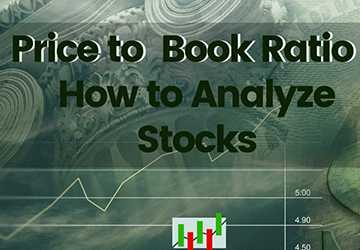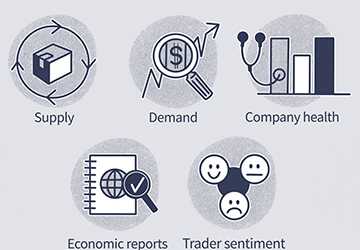3 Effective Methods for Filtering Stock Market Information
Are you wondering about stock market information constantly being thrown at you? Here is the problem of contemporary finance: getting lost in the avalanche of financial information coming from every direction.
What if you could cut through all that noise and zero in on what matters?

This blog post will explore three powerful ways of effectively filtering stock market information. Learn how to master these techniques, and you will find yourself making better-informed choices when it comes to investment.
Want to know how? Read more to find out the secrets of trimming your information inputs and taking that investment strategy to the next level!
Why Effective Information Filtering is Crucial for Investors?
Effective data sifting has become the key ingredient in this fast-moving investing world. It becomes so much that an investor is spoiled for choice on the sources to use with stock market data that it is easy to get swamped and decide on irrelevant data.
Poor investment decisions, more stress, and a portfolio that underperforms. By mastering a filtering method for this ocean of stock market information, you can cut through the noise.
You should focus and use only the data that matters to arrive at informed decisions, with the self-confidence and assurance of achieving the investment goals you have set.
Filtering saves you time, gives you accurate information regarding market trends, and gives you hints each time there is a valuable opportunity to tap into.
Ultimately, it will translate into better investment results and a more prosperous, less stressful investing experience.
Streamline Your Analysis with These 3 Methods
You have seen why it is crucial to be discerning when filtering stock market information. We continue looking at three powerful methods you can use to streamline your analysis and improve investment decision-making.
1. Trustworthy Sources: Leveraging Reliable News and Financial Platforms
One of the best ways to access all this information in the stock market is through reliable news and finance platforms.
In this digital age, misinformation and fake news can go viral in seconds, leading to confusion and the wrong investment choice.
So, avoid getting lured by data from unreliable sources; stick to sources such as Bloomberg, Reuters, or CNBC. They have a proven history of delivering accurate, timely, and unbiased market news.
By getting your information from such credible sources, you will undoubtedly acquire hard facts and insights on which to base your decisions.
Most of these platforms also offer personalized news feeds and alerts, so you can get real-time information about the stocks and sectors that matter to you.
2. Precision Tools: Utilizing Stock Screeners and Filters
These are very effective ways to add further filtration to the stock market. You can quickly scan thousands of stocks, filtering out some general guidelines that best correspond to your investment strategy.
Among companies doing your stock screen, look for capitalization in the market, for example, as well as a previously determined ratio of price to earnings or dividend yield.

Custom filters narrow the wide range to the most likely prospects for your stock goals and risk tolerance levels, saving you time and energy analyzing each stock manually.
Many financial platforms will provide embedded stock screeners, enabling easy access to this powerful tool in your search for investments.
3. Expert Insights: Following Analysts and Financial Experts
Remember to consider the value of expert opinions and analyses when filtering stock market information. While it's essential to do your research, following reputable analysts and financial experts can provide you with unique insights and forecasts that you might have otherwise missed.
These professionals often have years of experience and access to industry-specific knowledge, allowing them to spot trends and opportunities that the average investor might overlook.
Consider subscribing to newsletters from trusted financial institutions or following respected analysts on social media platforms like Twitter and LinkedIn.
By curating a feed of expert opinions, you can gain a more comprehensive understanding of the market and make better-informed investment decisions.
Remember always to consider expert opinions as a supplement to your research rather than the sole basis for your investment choices.
Enhance Your Investment Research with Efficient Filtering!
In today's fast-paced financial world, mastering the art of filtering stock market information is no longer optional – it's a necessity.
Implementing the three powerful methods outlined in this blog post can help you achieve a new level of clarity and confidence in your investment research.
Don't let the overwhelming flood of data hold you back any longer. The sooner you optimize your information filtering process, the sooner you can make better-informed decisions and see improved portfolio performance.
Don't wait; take action now and experience the difference effective information filtering can make in your investing journey.





